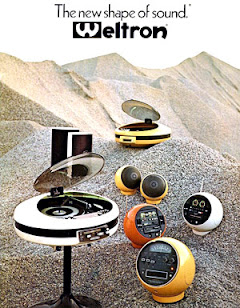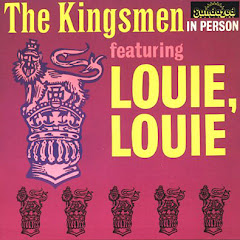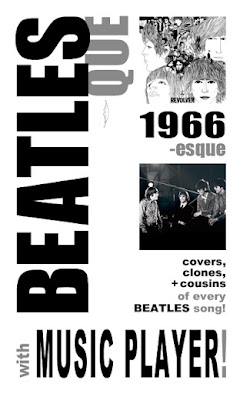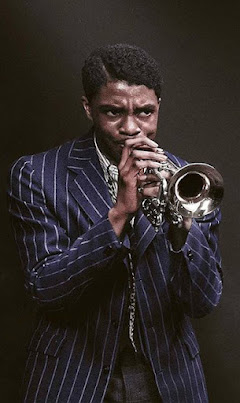a spark for the fire
that will burn the First Order down.
Shortcut links:
BEST MOVIES: 2017
BEST DOCUMENTARIES: 2017
BEST TV: 2017
- Sub-Essays:
- Blade Runner 2049
- The Handmaid's Tale
- The Deuce
- Star Trek: Discovery
- The Defenders
- Legion
- The Marvelous Mrs. Maisel
FILMSTRUCK
M O V I E S :
2 0 1 7
-MUDBOUND
✭✭✭✭✭ ⇧
A wrenching and complex character drama tracing the poisonous toll of the bigoted 1940s American South on everyone involved, told commendably from multiple points of view: spouses, landowners, tenant workers, soldiers.
Dee Rees (Pariah) directs a powerful cast into a decisive statement for human compassion.
-PLANETARIUM (France/Belgium) ⇧
Bernard Natan was a prime architect of the French film industry.
A mistakenly underrated film, Rebecca Zlotowski's fictional take on his apex is entrancing, shaded, and poignant.
Natalie Portman is masterful, and Lily-Rose Depp makes a strong debut.
-DUNKIRK ⇧
Despite some lazy press comparisons, Christopher Nolan's intense WWII epic is not about British triumphalism or isolationism.
It is instead very clearly about desperate individual struggles against war's barbarism turning into pointed solidarity against the forces of suffering.
(Translation: It's not pro-Brexit, it's anti-Fascism.)
-THE ZOOKEEPER'S WIFE ⇧
The harrowing true story of Polish zookeeps who smuggled Jews out of Nazi-occupied Warsaw.
A moving film adaptation by Niki Caro, starring Jessica Chastain.
-PROFESSOR MARSTON AND THE WONDER WOMEN ⇧
The secret polyamorous relationship of Wonder Woman co-creators William Marston, Elizabeth Holloway, and Olive Byrne was their private unknown.
But Angela Robinson ("The L Word") admirably molds the scarce facts into a sympathetic tribute to fluid relationships, sex-positive roleplaying, First Wave feminism, and progressive creativity as a tonic to all forms of spiritual and social oppression.
Live and let love.>
-DETROIT ⇧
A film that couldn't be more timely and relevant.
Kathryn Bigelow (The Hurt Locker, Zero Dark Thirty), emerging as an auteur about ethics during aggression, directs this true story of police brutality during the 1967 rise of inner-city revolts against poverty and oppression.
Tough to watch and absolutely necessary to see.
-MARK FELT: The Man Who Brought Down the White House ⇧
A film that couldn't be more timely and relevant.
Watergate is the modern moment when the American people first realized democracy was being hijacked by the greedy and the cruel.
A corrupt President trying to steal elections through traitorous espionage needs to be taken down by independent lawmakers, whether it's 1974 or now.
-MARSHALL
A solid, if basic, civil rights story based around pre-Supreme Justice Thurgood Marshall.
-CALL ME BY YOUR NAME
An idyllic romance, told with understated sensitivity.
-MARY SHELLEY
The best overview of the pivotal writer's life, with a compelling performance by Elle Fanning.
-I AM NOT A WITCH (Zambia)
Slyly understated condemnation of endemic sexism and superstition, with a delightfully natural star in young Maggie Mulubwa.
The Tree Of Life (2011) was so astounding because of the compassionate core story interlinked with the cosmic big picture.
Terence Malick's follow-ups since have been interesting stretches in style, with excellent cinematography spinning around actor improvs of spiritual disconnection; explorations in new narrative forms perhaps less fulfilling yet always fascinating to watch.
-THE FLORIDA PROJECT ⇧
Outrageous and hilarious.
This wild farce acts as a tonic to TV sitcom fantasies, showing actual struggling people trying to survive in a Orlando side motel in the shadow of The Magic Kingdom. Constantly startling, touching, and uproarious with a documentary-like naturalism that is breathtaking.
Bria Vinaite as the trash/star mother and Brooklynn Prince as her charmingly feral daughter are both riveting.
-LADY BIRD ⇧
Greta Gerwig's indie triumph about class struggles and coming-of-age in 2002 Sacramento satisfies on all levels with accomplished ease.
-COLOSSAL ⇧
This sorely overlooked comedy, connecting small-town Anne Hathaway's angst with a massive reptile in Korea, starts winningly, and becomes bravely edgier and more complicated halfway in.
-OKJA ⇧
Bong Joon-ho (Snowpiercer) throws a fun curveball.
'Too edgy' for an average children's movie, 'too preachy' for the unconscious, but -in truth- far too good not to see.
Laughs, with some serious punch.
-THE BIG SICK ⇧
Stand-up comedian Kumail Nanjiani and his partner Emily V. Gordon's fictional take on their courtship is great fun, with a terrific cast, agile turns, and inspired lines.
-BRIGSBY BEAR ⇧
A left-field zinger.
Starting from a surprise premise, the film spins out into a fun and smart fable about connection through creativity.
Made by a cast of crack SNL regulars as a personal project, but stolen by Mark Hamill.
-STAR WARS: THE LAST JEDI
✭✭✭✭✭ ⇧
THE LAST JEDI, the second chapter of the final STAR WARS trilogy, inverts the elements and themes of THE EMPIRE STRIKES BACK inside out to open up new breadth and depth that no one expected.
It is newly edgy, complex, upending, and outright traumatic, and a brilliant move forward into unexplored territory.
> Why EMPIRE and LAST JEDI are actually the Best of the STAR WARS films
-BLADE RUNNER 2049 ⇧
Everyone missed Blade Runner when it came out.
Everyone missed Blade Runner 2049 when it came out.
Here's why both will triumph anyway.
In 1982, Blade Runner took its bow during 'the best SciFi Film Summer ever'.> In the days when movie theatres were the sole option and lines rounded the block for months, Star Trek II, E.T., and Poltergeist devoured all the money, while The Road Warrior, The Thing, and Blade Runner got scraps. But in the next two years, the latter three films found their audience through word-of-mouth, the first affordable VHS rentals, and premium cable showings. As a cult hit, Blade Runner blueprinted virtually all of Tech Noir and CyperPunk that followed. After a decade's build-up, Blade Runner became widely acknowledged by the '90s as a visionary breakthrough and a fine film classic beyond genre or era or receipts.
In 2017, the excellent sequel Blade Runner 2049 came out to universal rave reviews and moderate box-office after a long summer of blockbusters. In the USA, that is. But 2/3 of its total money came from international release, meaning that as usual the local American "Opening-Weekend-Cockfight" myopia failed to recognize it as the global hit it truly was. And will continue to be further, because of word-of-mouth, streaming and renting, and cable showings. Quality is timeless and wins for the long, regardless.
Catch up to the future, again.
-WAR FOR THE PLANET OF THE APES ⇧
The ascendingly great prequel trilogy (Rise/ Dawn/ War) is complete, ending in a grand zenith.
The second film, Dawn, was essentially the Godfather II of Apes films, and this crescendo escalates the scope and depth admirably.
Andy Serkis is again Oscar-worthy as Caesar, leader of a new age of evolution.
-THE SHAPE OF WATER ⇧
Amelie meets Abe Sapien.
Guillermo Del Toro's lush romance and moral fantasy enchants the senses.
-WONDERSTRUCK ⇧
Todd Haynes' weave of two stories, a girl in 1927, a boy in 1977, is a beguiling mystery and visual opus great for head and heart.
-MARJORIE PRIME ⇧
This confident adaption of the Pulitzer-winning play rings like the best of Arthur Miller and Rod Serling.
Speculative fiction working within the strongest tradition of character stage plays, challenging our sense of connections, ethics, and memories.
Amid compelling perfomances by Jon Hamm, Tim Robbins, and Geena Davis, it's veteran character actor Lois Smith who steals the show.
-THE DISCOVERY
Both Marjorie Prime and The Discovery should be of interest to "Black Mirror" fans.
A speculative character drama about the ramifications of the scientific confirmation of an Afterlife, with Robert Redford, Rooney Mara, Jason Segel, and Jesse Plemons.
-A GHOST STORY ⇧
Following a forlorn sheeted ghost longing for a life past, this slow-burn meditation on loss, memory, time, and love is quietly heartbreaking and thoughtful.
-MOTHER
Aronofsky's allegory about the creative process. Surprisingly, kneejerks don't get it.
-THELMA (Norway)
Thelma is waking up to new possibilities within herself... but is that a good thing?
-THE LURE (Córki Dancingu) (Poland)
An inversion of Andersen's "Little Mermaid".
The most interesting horror-musical-fantasy-satire-art film that 1986 should have made.
-SPLIT
James McEvoy's most complex and arresting performance centers this left-field thriller.
-PERSONAL SHOPPER
Quiet, layered indie mystery with suspense and mindbends.
I M A G E S
I review and do original illustrations for
Comics-based films for the review site,
Four Color Films.
-LOGAN ⇧
My Review and original art
-WILSON
-GHOST IN THE SHELL
-WONDER WOMAN
My Review and original art
-SPIDER-MAN: HOMECOMING
-GUARDIANS OF THE GALAXY, Vol. 2
-THOR: RAGNOROK
-SLEIGHT
Perhaps the new CHRONICLE (2012).
The basicness of this indie film is its charm, grounding a semi-superhero in urban settings and character drama.
Solid story, good heart.
Underrated, Dept.:
-JUSTICE LEAGUE
Your honor, I can explain.
No one dislikes MAN OF KILL and B/S more than me.
And yet this Course Correction Checklist hinges (just barely) into generally good.
See Also:
> Four Color Films,
THE Comic Movies Review Site!
-LOVING VINCENT ⇧
The world's first fully-painted film, with oil-painting still frames by 125 artists across 5 years, feeds the head and senses. And it's a fine Rashomon-style mystery story, as well, conveyed in multiple twists by an ace cast, pre-filmed and rotoscoped.
-YOUR NAME (2016; Japan)
A conventional body-swap comedy anime that (like Colossal above) becomes abruptly more interesting and dramatic in the middle.
Excellent backgrounds and camera effects.
-COCO
One of Pixar's best.
A movie so rich -in story, details, and invention- that it's intoxicating.
TV:
-STAR WARS: REBELS 3b / 4a
The CG-animated series, which embodies the best qualities of the original first film, begins dovetailing nicely into the era of Rogue One.
-STAR WARS: FORCES OF DESTINY 1 ⇧
A fun new animated series of three-minute shorts, focusing on Rey, Leia, Padme, Jyn, Sabine, etc.
Daisy Ridley, John Boyega, and Felicity Jones even return to do their voices!
> Watch them here.
D O C U M E N T A R I E S :
2 0 1 7
-I AM NOT YOUR NEGRO ⇧
The words and wisdom of James Baldwin about the ongoing Civil Rights struggle.
-WHOSE STREETS
The Ferguson, Missouri, uprisings against bigoted police brutality.
-THE VIETNAM WAR ⇧
Ken Burns.
-AN INCONVENIENT SEQUEL: Truth to Power
Al Gore. Because honoring the truth is crucial to survival.
-BATMAN AND BILL ⇧
It was actually Bill Finger, and not Bob Kane, who created every aspect we love about Batman.
-BOMBSHELL: The Hedy Lamarr Story ⇧
Glamour Age actor, scientist who invented WiFi, inspiration for Catwoman.
-THE TOYS THAT MADE US: Episode 1, STAR WARS
The crazy story of how Kenner toys revolutionized the toy industry like the 1977 film remade the film industry.
-KEDI ⇧
The freerange cats of Istanbul.
-FACES PLACES
Two singular artists tour France creating portraits of those they meet.
T V :
2 0 1 7
-TWIN PEAKS ⇧
An 18-hour film, testing every limit heedlessly.
The original "Twin Peaks" series (1990-'91) reconstructed television, and this return deconstructs itself.
David Lynch and Mark Frost once blew your volts like a blackout... and it is happening again.
> TWIN PEAKS: Its Influence on 25 Years of Film, TV, and Music!, with 5 Music Players!
-BETTER CALL SAUL 3
Quietly, "Saul" is the most mature and contemplative show on television.
As if Tennessee Williams or Lillian Hellman were writing the prequel to "Breaking Bad".
-THE HANDMAID'S TALE 1
Margaret Atwood's classic 1985 book is a dystopian rallying cry for the ages. She achieved it through insularity: the interior monologues and isolated environs of one person, which make the book both intensely personal while temporally universal.
And hard to dramatize. The Hulu series adaptation takes an insane risk to expand it by literalizing and lateralizing it: literal in the sense of current events and specific settings, lateral in new multiple characters with different outlooks. What could become clumsy or strident is most often deft and sure. What holds it together is the core message, now more necessary than ever... to hold onto your humanity in the midst of repression.
-ALIAS GRACE (maxi-series)
Margaret Atwood's faceted parable, based around a true 19th century murder mystery, pivotes around the inscrutable and mesmerizing performance of Sarah Gadon.
-THE DEUCE 1
This is about far more than the birth of the Porn industry.
It's the the gateway to how the rich have stolen democracy using gentrification.
This series helmed by David Simon ("The Wire") does an amazing job of reconstructing seedy 1971 NYC, as the sex trade morphs into the mainstream breakthrough of Porn chic. But that was only the beginning. Whether the show will address it or not, the corraling of the sex industry by corrupt police was engineered by politicians and land barons, who let the inner city rot and burn (birthing Punk and HipHop sideways)>>, then displaced the immigrant poor, gentrified the urban ruins, and used their realty riches to commercialize Times Square and purchase power as Mayor, Governor, and now President.
For those who know history, The Deuce is subliminally about the corrupt rise of the Oligarchy that rules us.
-MR. ROBOT 3
Thankfully, we have this finely-wrought series to challenge all forms of corporate fascism.
Sam Esmail's cinema-quality epic dismantles itself as much as the power structure in this essential Punk molotov.
-FEUD 1
The first season of the anthology series is a riveting telling of the bitter feud between Bette Davis and Joan Crawford.
By Ryan Murphy ("The Shield"), with excellent performances by Susan Sarandon and Jessica Lange.
-STAR TREK: DISCOVERY 1a ⇧
The precise Star Trek series we really need.
Wild > tame > wild.
The original Roddenberry Star Trek series (1966-1969) was a wild frontier of action, edge, and ideas. The Berman-era spin-offs The Next Generation, Deep Space Nine, Voyager, and Enterprise (1987-2005) were more formal, stylized, and sober. The Abrams film reboots (since 2009) and the Fuller-initiated Discovery series (2017) unleash the untamed spirit of the original, now ramped and rethought.
Mod > New Age > PostPunk.
The '60s version channeled the vibrant and challenging possibilities of its renaissance zeitgeist. The '80s+ versions apologized past experimentalism into stylization and sobriety. The '10s version rips it up and starts again> looking for new edge and wonders.
Bradbury > Clarke > Dick.
The '60s show was Ray Bradbury, a Dada collage of disparate classic elements in alternative vistas. The '80s was Arthur C. Clarke, a boosterism mural of streamlined futurism. The '10s is Philip K. Dick, a krylon wall throw-up of rebel reassessments.
Roddenberry > Berman > Fuller.
Roddenberry invented the alphabet of modern SF shows. Berman produced formal essays. The Fuller-associates* make cut-ups out of all of it.
- * Bryan Fuller concieved the new show, but it was actualized by his associates, Gretchen J. Berg and Aaron Harberts.
Interpreting Roddenberry's template, the Berman series were each valuable and rewarding for their expansive reflection. But it's past time to drop the polite formalism and bright comfort, to strip off all the shellac down to the raw wood. Discovery disorders the order: sideways crew focus instead of the bridge ensemble, two ships in different times, confliction and conviction, blood and bruises, every turn upendings and inversions of character, loyalties, canon, time, and space.
This is precisely what we need, a show that recalls where we started from to go where we have yet to go.
Infinite diversity in infinite combinations.
Strange new worlds. Out there, thataway...
-THE ORVILLE 1a
Seth MacFarlane's homage spoof is basically ST: The Next Generation under a heat lamp, with nyuk jokes.
It's no Galaxy Quest, but somehow, because of its actual veneration of all things Trek, it begins to work on its own accord.
-BLACK MIRROR 4 ⇧ Netflix
More typically and topically razor-sharp allegories about tech nightmares from Charlie Brooker.
The opener, "U.S.S. Callister", is such an inspired rethink of the alternate possibilities of Star Trek that it rightly deserves a spin-off series of its own.
-AMERICAN GODS 1 ⇧
It's not enough that Bryan Fuller ("Wonder Falls", "Hannibal") has done a letter-perfect adaption of Neil Gaiman's book. He also is expanding it with 70% of new material that is just as good.
A great thing greater.
-SENSE8 2 Netflix
Cut off by Netflix, the Wachowskis are forced to wrap up their 5-season plan in a compressed season.
-Philip K. Dick's ELECTRIC DREAMS 1
Philip K. Dick was the experimental anarchist of SciFi authors whose works have been filmed as Blade Runner, Total Recall, A Scanner Darkly, and "The Man In The High Castle".
This canny anthology series adapts his challenging short stories.
-COLONY 2
The overlooked rebellion-against-alien-overlords series stays firmly grounded in character, politics, and real settings.
-INCORPORATED 1
This parable about a future Corporate dystopia was exactly about right now.
And, criminally, got cancelled. Still worth the trip.
-12 MONKEYS 3
-STRANGER THINGS ⇧ 2 Netflix
Confident in its momentum, the show expands its cast and scope, for richer results.
-THE EXORCIST 2
No one is more dubious than me of any attempt to follow The Exorcist (1973), a timelessly brilliant book and film.
But this series (generally) holds onto what matters to make it work: deep character build, belief and doubt, science and supra, punctuated by jarring intensity.
John Cho gives his best performance here.
-FORTITUDE 2
Daring or debacle?
YesNoBothOther.
-DARK (Germany) Netflix 1
It is
It is happening
It is happening again
-OUTLANDER ⇧ 3
OUTLANDER is one of the finest shows being made.
And my favorite romance, ever.
-GAME OF THRONES 7
The penultimate season is on rabid overdrive, blazing through shocking revelations and turnovers like a molten scimitar.
-ORPHAN BLACK (Canada/BBC) 5
Tatiana Maslaney bows out in a smart finale, particularly in its last grace notes.
-DIRK GENTLY'S HOLISTIC DETECTIVE AGENCY (Canada/BBC) 2
A complex and chimeric overhaul of Fantasy vogues, in full-on breathless Douglas Adams-style flair.
-DOCTOR WHO 10
Peter Capaldi's adroit swan song.
-IRON FIST 1 Netflix
-THE DEFENDERS 1 ⇧ Netflix
Some helpful context for those coming in.:
The fruition of 1975, 1981, and 2002.
Colleen Wing; White Tiger; Shang Chi
Comics heroes became much more culturally diverse in the early '70s because of the inclusion activism of the counterculture. By 1975, Marvel had unveiled a pantheon of action street heroes who soon became intertwined: Luke Cage, Iron Fist, Misty Knight, Colleen Wing, White Tiger, and Shang Chi; much of this reflected blax/plosion films, the martial arts craze, and the backgrounds of the young New York creators themselves. (On the occult side, there was also Blade the Vampire Hunter.)
In the early '80s, Frank Miller brought hardboiled severity in with Daredevil, Elektra, and The Hand.
In the '00s, Brian Michael Bendis joined them all together with his Jessica Jones in adult noir arcs influenced by Tarantino and "The Wire".
The current Netflix shows of the Hells Kitchen pantheon -"Daredevil", "Jessica Jones", "Luke Cage", and "Iron Fist"- are the sum of these specific three classic revolutions. Each show was world-building the total pantheon to meet together in the "Defenders" team-up series; each was never only singular, but part of that evolving gestalt.
(Each also directly reflects the eras, styles, and inventions of their best comics creators; e.g., the ninja noir of Miller in Daredevil, or the early '70s Black Chic of Luke Cage.)
1: Iron Fist, Luke Cage, Daredevil; art: Alex Maleev
2: Luke Cage and Jessica Jone; art: Michael Gaydos
The quality of each show speaks for itself, but the pantheon is still mutually evolving. An appreciation of those 1975, 1981, and 2002 sources can abate any misunderstandings of who the pantheon is or where it is heading. So no, Iron Fist shouldn't be recast as Asian, because in the eclectic wider pantheon that was Shang Chi and Leiko Wu; two people are destined to become the Daughters of the Dragon; and while one person is becoming Hellcat, another is stealthily morphing into a new White Tiger. (How many of you caught that one?)
Just as The Avengers conjoined the Marvel films into the gods of Olympus, "The Defenders" is taking the people's pantheon to the streets.
-LEGION ⇧ 1
Logan isn't the revolution, it's "Legion".
While Logan sands superheroes back down into Ford and Peckinpah, "Legion" burnishes them into Kubrick and Lynch.
art: Bill Sienkiewicz
Legion, a schizoid 1985 X-Men spin-off character, was made memorable by the art of Bill Sienkiewicz; a surreal blend of Neal Adams naturalism, Bob Peak flair, and Ralph Steadman slash.
Taking the cue, showrunner Noah Hawley ("Fargo") channels this fine art into select cinema. "Legion" creates a world of its own, molded in 1968-1974 Mod futurism, throbbing with art-prog, projected in panavision. It's Tarkovsky scored by Pink Floyd, A Clockwork Orange staged by Matthew Barney, Fellini ghostwritten by Ken Kesey. This is a higher better level, a postmodern symphony shot in ultraviolet.
Logan is the nihilist brutality of Miller, but "Legion" is the mature sophistication of Moore. That's always the better revolution, before and now.
-THE GIFTED 1
This X-Men spin-off is generally solid, with an attention to character.
-RUNAWAYS 1
Based on Brian K. Vaughan's comic, this series has more expansive craft and scope than "The Gifted".
-AGENTS OF S.H.I.E.L.D. 4b/ 5a
The supernatural fourth and cosmic fifth seasons have been the best yet.
Ghost Rider, virtual reality, and Time And Space.
-INHUMANS 1
Actually a generically decent show, if uneven.
If a comics adaption this boldly faithful had come out during "Smallville" and "Heroes", it would have been a step forward. Now in an decade spoiled for quality and range, it lags far behind.
-THE TICK 1a
Creator Ben Edlund teams with Wally Pfister (cinematographer for the Nolan Batman trilogy) to kickstart The Tick better and battier than ever.
The pleasure of the DC-TV shows is seeing the Silver/Bronze Age Of Comics come to life.
As a desperately needed antidote to the dour Snyder-verse films, any formula loops, teenie focus, or dumb missteps involved are forgiven in the fun of it all.:
-SUPERGIRL 2b/ 3a
The third season is tighter, more mature.
-THE FLASH 3b/ 4A
The Fourth season is balancing strengths: cast chemistry, edge, fun.
-LEGENDS OF TOMORROW 2b/ 3a
"Doctor Who" meets "Firefly". A freeform tonic to the formulas of its sibling shows.
-ARROW 5b/ 6a
The examination of Oliver's unnecessarily violent past is finally well-addressed through his new vigilante crew.
See Also:
> Four Color Films,
THE Comic Movies Review Site!
-FARGO 3 ⇧
The "Fargo" anthology series helmed by Noah Hawley is like a master class in how to do cinema quality for longform television.
Mary Elizabeth Winstead, David Thewlis, Michael Stuhlbarg, and Ewan McGregor (in a dual role) are spellbinding.
-SHERLOCK 4
The anti-concensus is wrong: this is the finest season.
The handling of Moriarty before wasn't convincing, and this season upends that with enlightened panache.
-ELEMENTARY 5b
The fun of this stealth alternate to Sherlock is its gleefully serpentine mysteries, dry social satire, and the impish chemistry of Holmes and Joan Watson.
-BROADCHURCH 3
Chris Chibnall brings his sterling trilogy to a fine close.
-AMERICAN CRIME 3
-TOP OF THE LAKE 2
If Jane Campion's sharp first season was David Lynch done straight, this odd follow-up is Robert Altman done seemingly for the hell of it.
-THE MARVELOUS MRS. MAISEL 1 ⇧
Creator Amy Sherman-Palladino ("Gilmore Girls") is on wanton fire with this lava avalanche.
Set in 1958 NYC, the series channels Lenny Bruce and Joan Rivers through Midge, an acerbic woman who's had enough, letting it all out in scandelous stand-up routines in Greenwich Village. The dialogue is endlessly quotable, the delivery breakneck, the commentary serrated, and the ensemble better than Broadway.
And they caught lightning in a bottle twice, with the brash Rachel Brosnahan as Midge and the brusk Alex Borstein as her manager Susie.
Insanely funny, unrelentingly smart.
-BROAD CITY 4
Ilana Glazer and Abbi Jacobson crashing into everything.
-PEOPLE OF EARTH 2
-THE GOOD PLACE 2
Bright absurdism with an undertow bite.
F I L M S T R U C K
* * * * *
Some folks think Netflix has everything.
Actually, Netflix has 2% of some things (mainly solid original shows).
But if you're serious about learning the true canon of full quality cinema, the classics beyond all, there's only one place to go.
The Filmstruck film-streaming site is the best cinema from around the world and every decade, along with the Criterion Collection and first-rate documentaries. If you've watched Mark Cousins' "The Story of Film: An Odyssey" documentary series as a primer >, this is the true library to enjoy the actual film classics that matter most.
Skip Starbucks and imbibe culture.
Update: Filmstruck morphed into The Criterion Channel in Spring 2019.
© Tym Stevens
See also:
• BEST MOVIES + TV: 2023
• BEST MUSIC: 2023
• BEST COMICS: 2023
• BEST MOVIES + TV: 2022
• BEST MUSIC: 2022
• BEST COMICS: 2022
• BEST MOVIES + TV: 2021
• BEST MUSIC: 2021
• BEST COMICS: 2021
• BEST MOVIES + TV: 2020
• BEST MUSIC: 2020
• BEST COMICS: 2020
• BEST MOVIES + TV: 2019
• BEST MUSIC: 2019
• BEST COMICS: 2019
• BEST MOVIES + TV: 2018
• BEST MUSIC: 2018
• BEST COMICS: 2018
• BEST MUSIC: 2017
• BEST COMICS: 2017
• BEST MOVIES + TV: 2016
• BEST MUSIC: 2016
• BEST COMICS: 2016
• BEST MOVIES + TV: 2015
• BEST MUSIC: 2015
• BEST COMICS: 2015
• BEST MOVIES + TV: 2014
• BEST MUSIC: 2014
• BEST COMICS: 2014
• BEST MOVIES + TV: 2013
• BEST MUSIC: 2013
• BEST COMICS: 2013
• BEST MOVIES + TV: 2012
• BEST MUSIC: 2012
• BEST COMICS: 2012
• BEST MOVIES + TV: 2011
• BEST MUSIC: 2011
• BEST COMICS: 2011
• BEST MOVIES + TV: 2000-2010
• BEST MUSIC: 2000-2010
• BEST COMICS: 2000-2010
• How STAR WARS Is Changing Everything!
• 2001: A SPACE ODYSSEY - Its Transcendent Influence on all Pop Culture, with Music Player!
• How SPAGHETTI WESTERNS Revolutionized Rock Music!, with 3 Music Players!
• TWIN PEAKS: Its Influence on 30 Years of Film, TV, and Music!, with 5 Music Players!
• The Real History of ROCK AND SOUL!: The Music Player Checklist
• THE CANON 1: 50 Books That Created Modern Culture, with Music Player
• THE CANON 2: 50 More Books That Created Modern Pop Culture, with Music Player
• THE CANON 3: 50 Recent Books That Created Modern Culture, with Music Player
















































































































































































